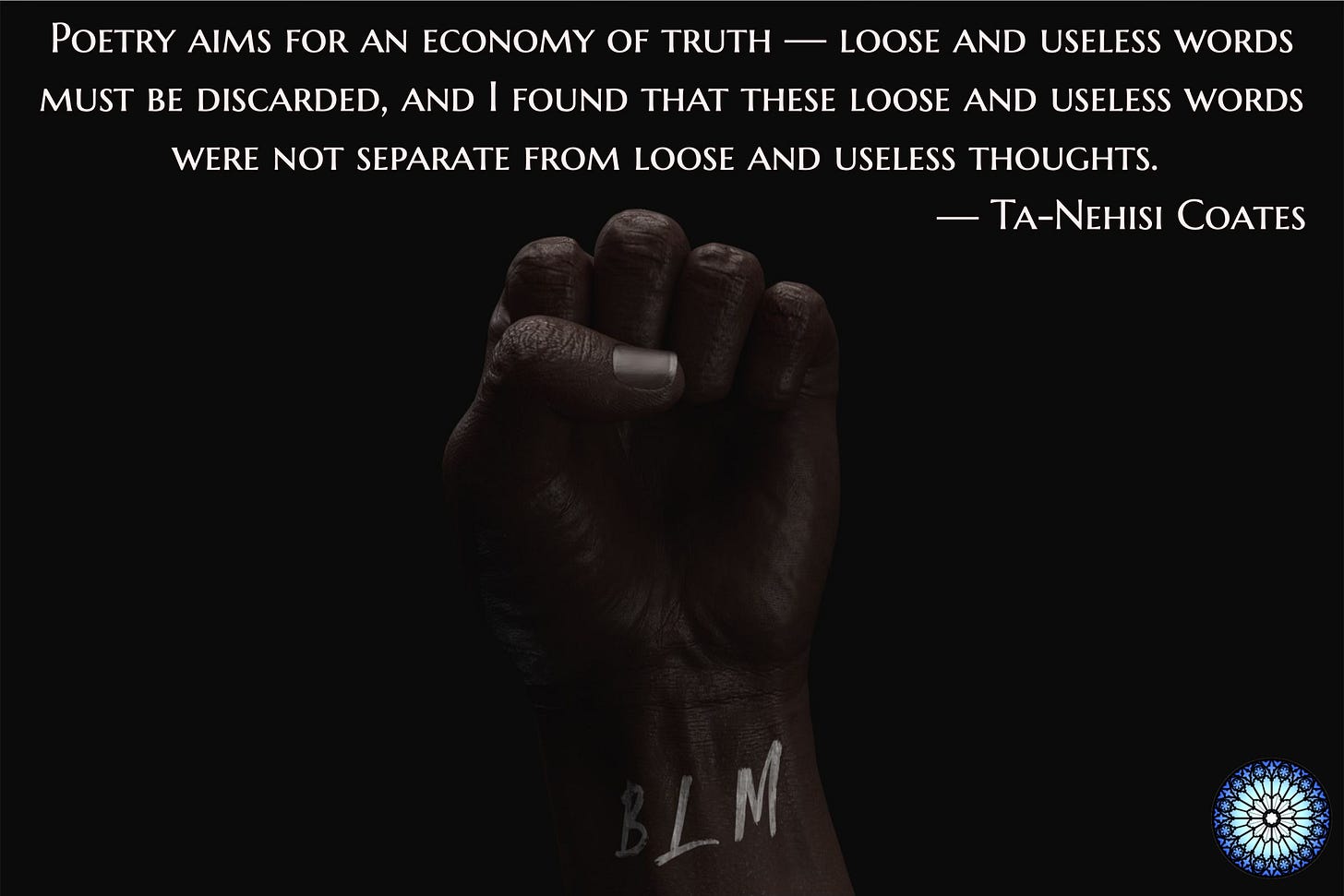An Economy of Truth
Practicing Non-Attachment to Words that Distract Us
Ta-Nehisi Coates (b. 1975) is an author and activist best known for his work denouncing racism and injustice. In his bestselling book, Between the World and Me, he describes himself as “godless.” So why am I quoting him in a newsletter about contemplative mysticism?
Because I believe that what he has to say about poetry is just as relevant to our explora…




